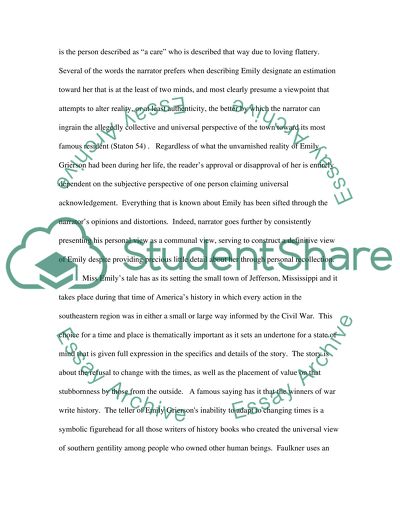Cite this document
(“Narrative Subjection of Emily Grierson from A Rose for Emily Book Report/Review”, n.d.)
Retrieved from https://studentshare.org/literature/1528962-narrative-subjection-of-emily-grierson
Retrieved from https://studentshare.org/literature/1528962-narrative-subjection-of-emily-grierson
(Narrative Subjection of Emily Grierson from A Rose for Emily Book Report/Review)
https://studentshare.org/literature/1528962-narrative-subjection-of-emily-grierson.
https://studentshare.org/literature/1528962-narrative-subjection-of-emily-grierson.
“Narrative Subjection of Emily Grierson from A Rose for Emily Book Report/Review”, n.d. https://studentshare.org/literature/1528962-narrative-subjection-of-emily-grierson.


